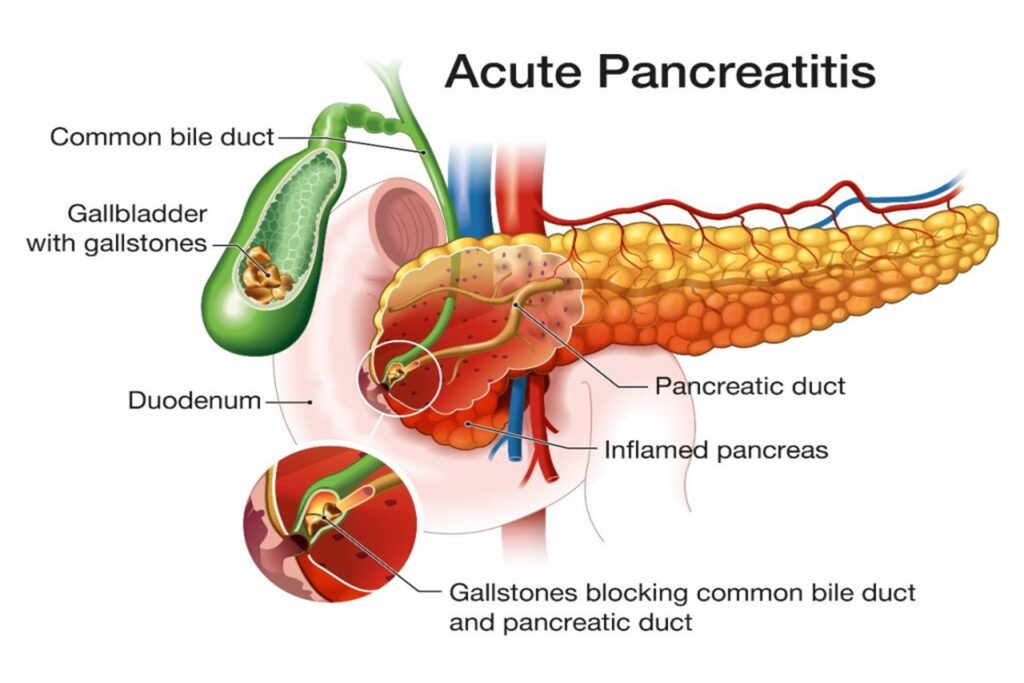
Overview:
Pancreatitis is the inflammation of the pancreas, an organ responsible for producing digestive enzymes and insulin. It can be acute (sudden onset) or chronic (long-term), leading to severe complications if untreated.
Causes:
Pancreatitis is commonly caused by gallstones, excessive alcohol consumption, high triglyceride levels, certain medications, or infections. Other risk factors include smoking, obesity, and genetic predisposition.
Symptoms:
Symptoms include severe upper abdominal pain that radiates to the back, nausea, vomiting, fever, bloating, rapid pulse, and jaundice in severe cases. Chronic pancreatitis may cause weight loss and fatty stool due to poor digestion.
Treatment:
Treatment depends on severity and includes fasting to rest the pancreas, IV fluids, pain management, and enzyme replacement therapy. In severe cases, hospitalization may be needed, and surgery may be required for gallstone removal or pancreatic drainage.
Precautions:
Avoid alcohol, smoking, and high-fat foods. Stay hydrated and follow a balanced diet. Regular check-ups are necessary for those with a history of pancreatitis to monitor pancreatic function.
Prevention:
Maintaining a healthy lifestyle, controlling cholesterol and triglyceride levels, and managing underlying conditions can help prevent pancreatitis.
For expert pancreatitis care, visit KDM Hospital in Lucknow. The hospital provides advanced diagnosis, treatment, and round-the-clock medical support for complete recovery.
